Assign Coping Skills & Strategies to a Client
Table of Contents
Update coping skills for your client
Development of new skills for coping is at the heart of most evidence-based treatment approaches. You will find a treasure-trove of skills ready to add to your client's repertoire in the app during the course of treatment. You can use templates or choose to use your own.
Set standard or customized coping skills
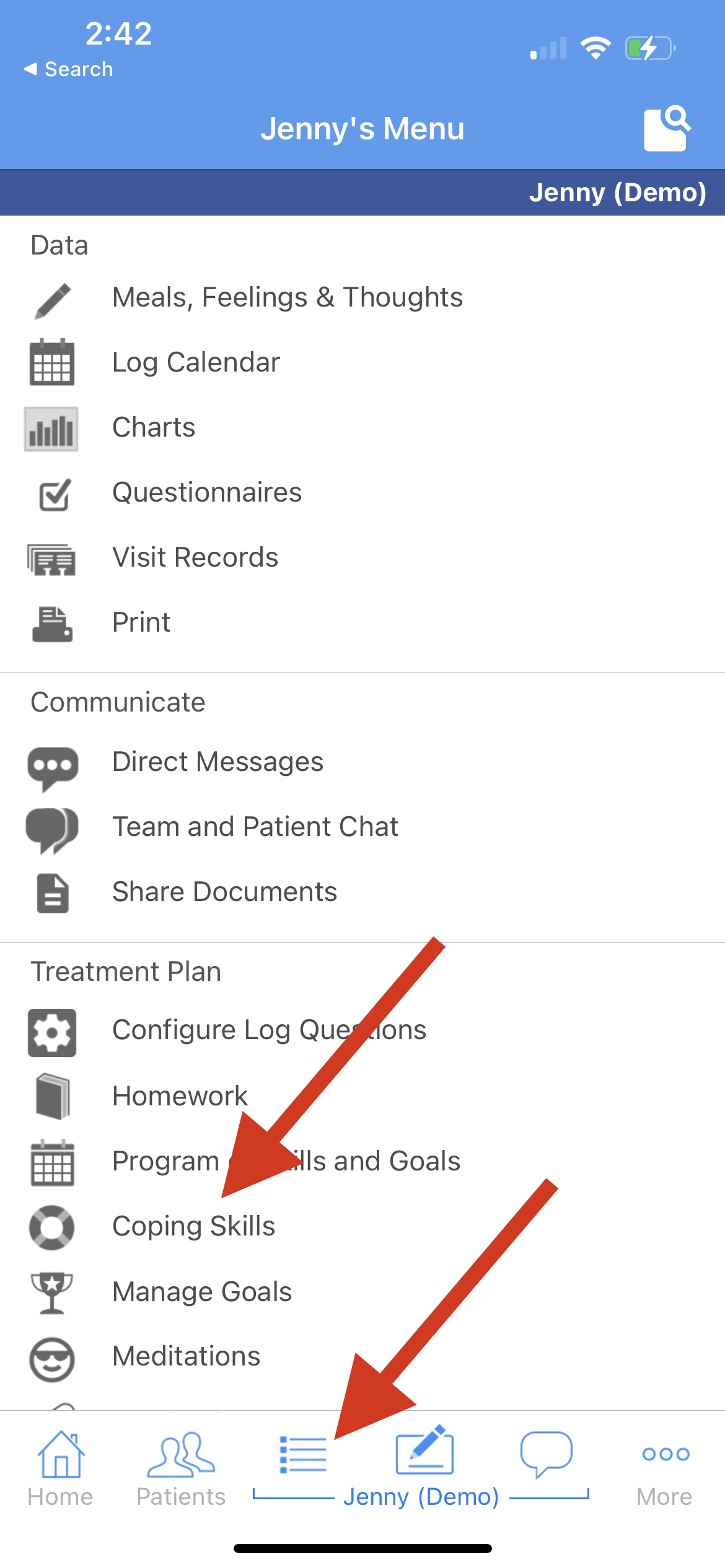 |
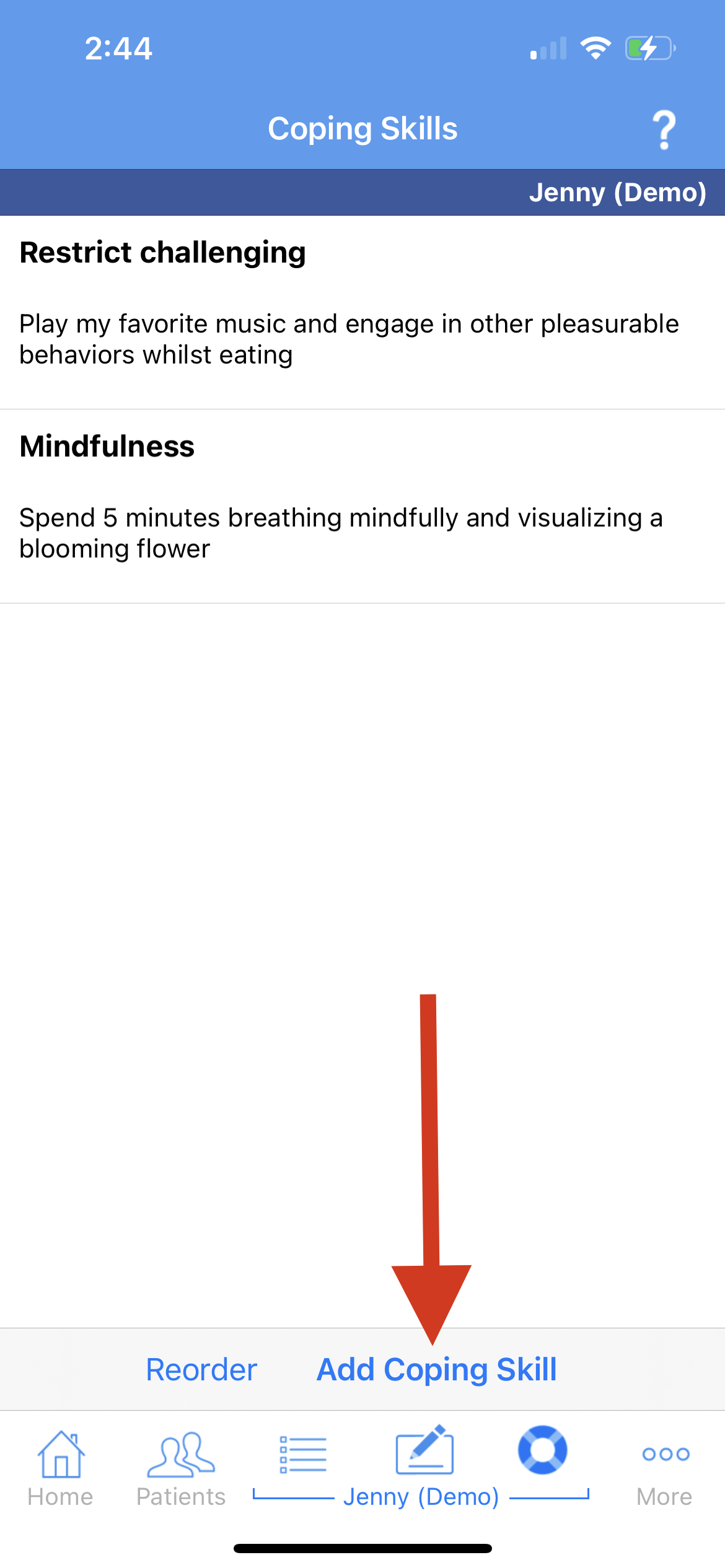 |
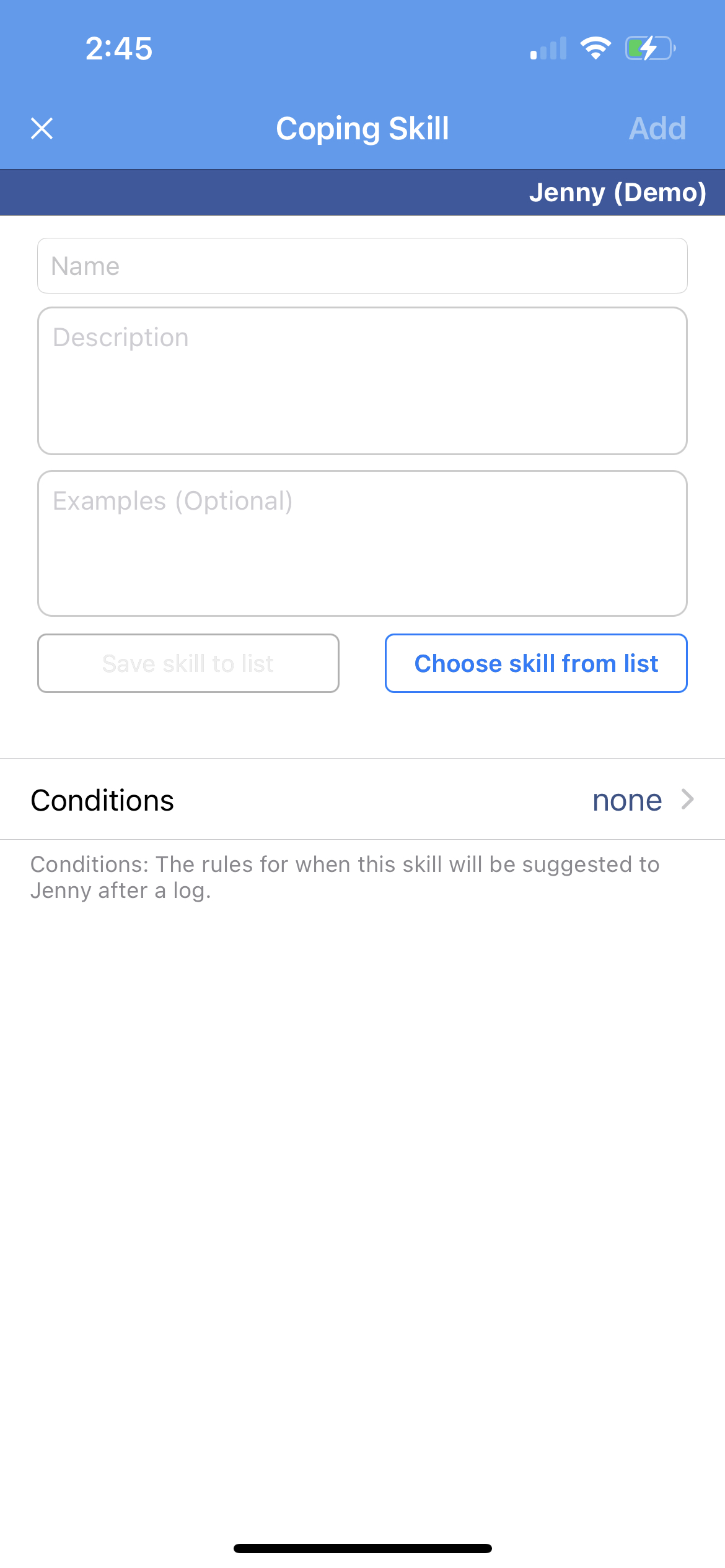 |
Choose coping skills for your client from the list
You will find over 200 evidence-based, expert vetted CBT, DBT and ACT coping skills. Select your therapeutic approach to find skills that are the best fit for your client.
Set standard or customized coping skills
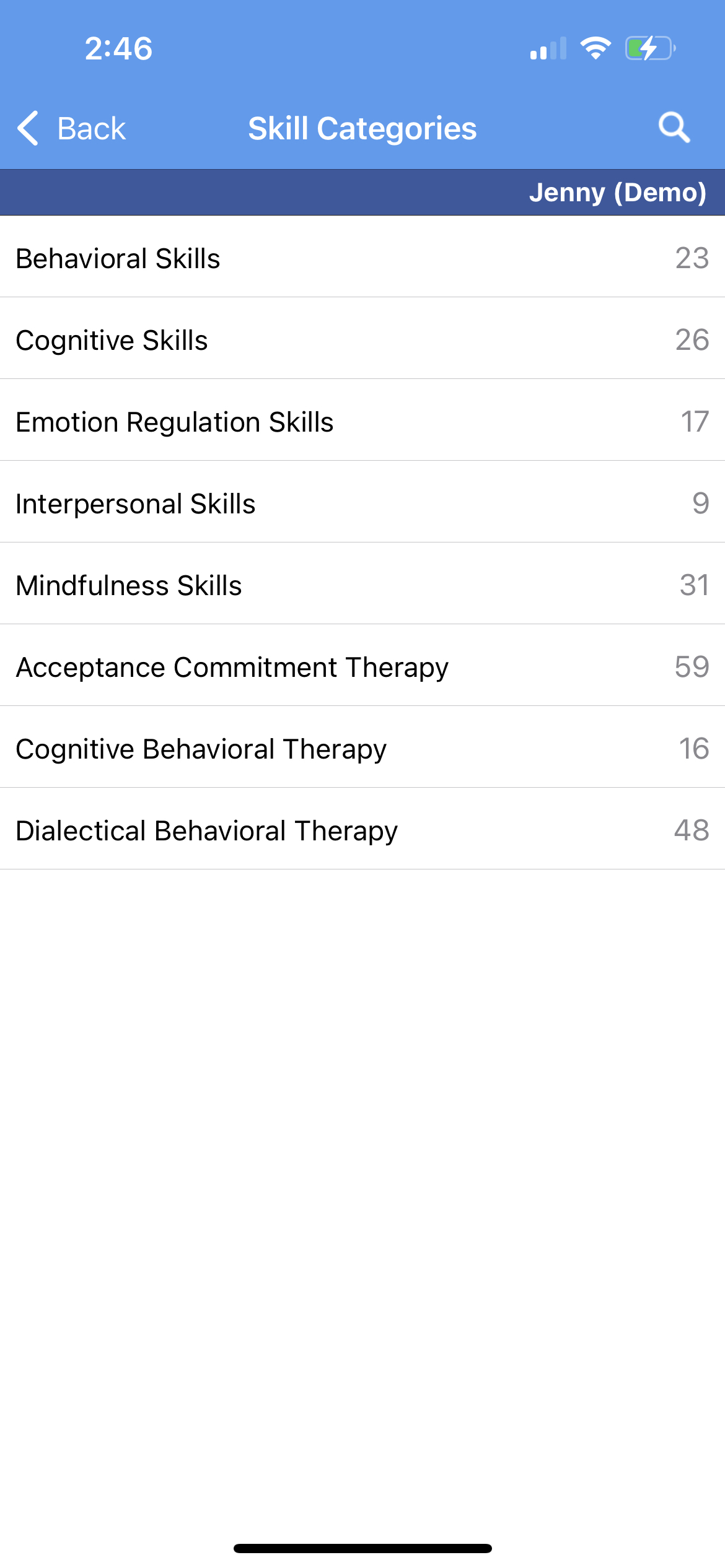 |
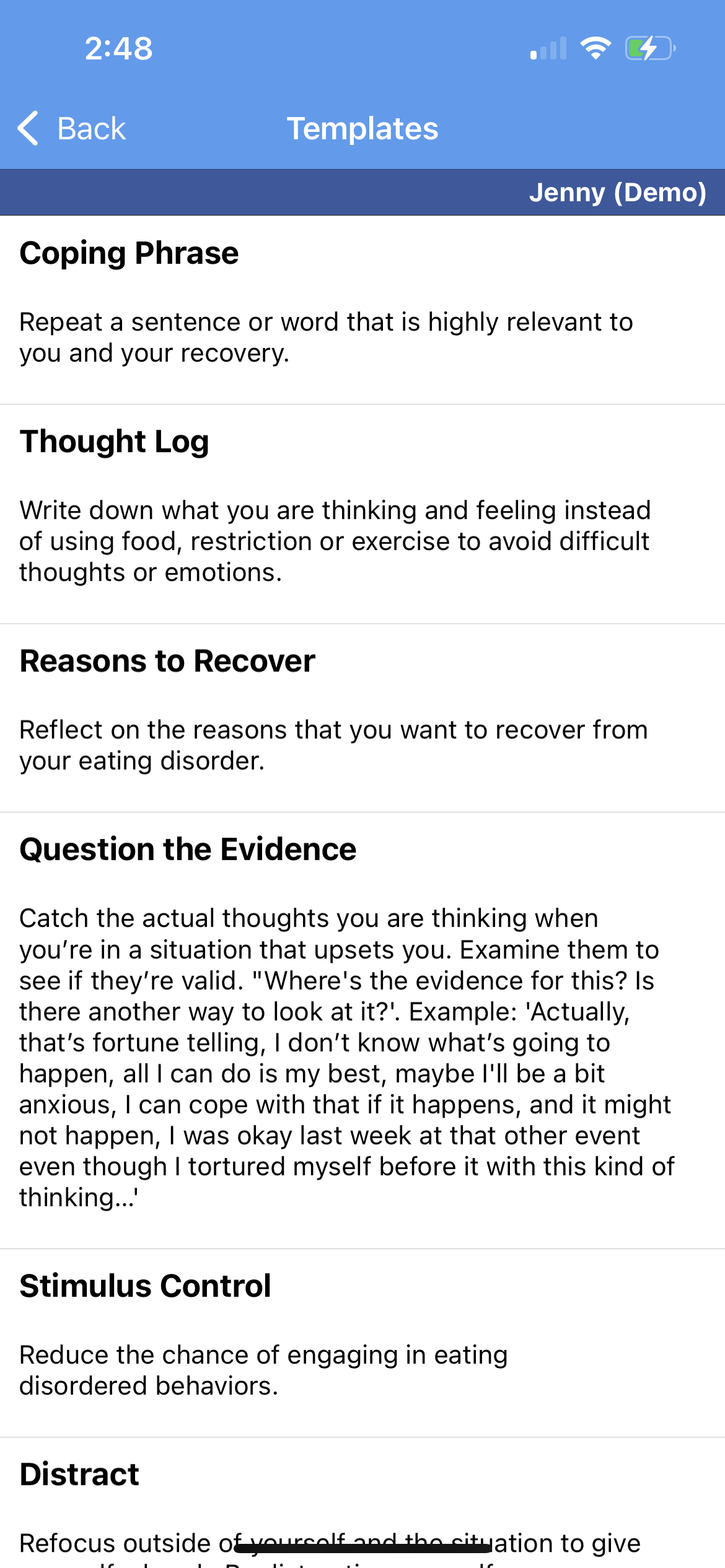 |
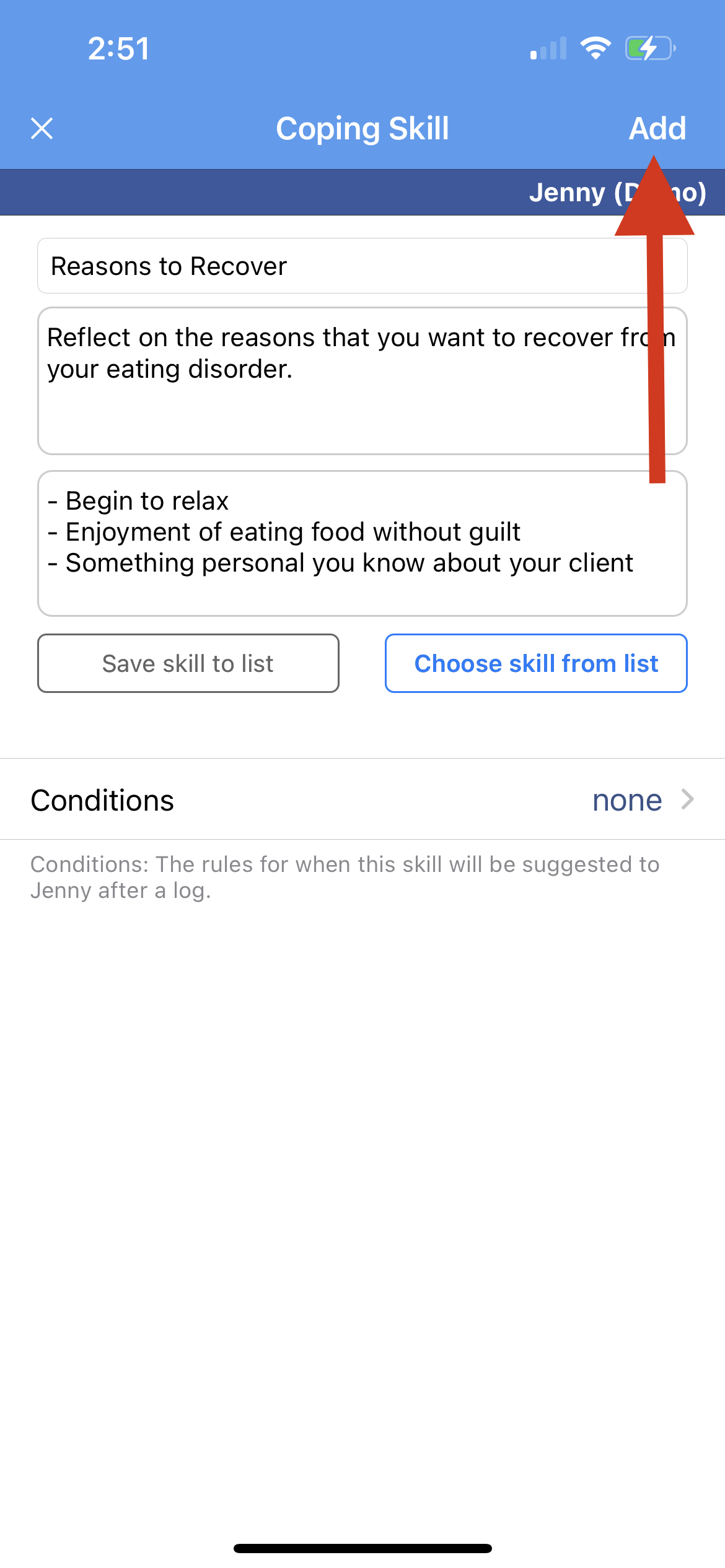 |
Set if / then conditions for the skill to be suggested
In a moment of distress it can be difficult for clients to recall and apply the strategy discussed in session. Patients will be reminded of all skills available to them each time they log a meal, and the right skill can be suggested at the right time with auto-show conditions.
Your client is reminded of skills and checks off the use
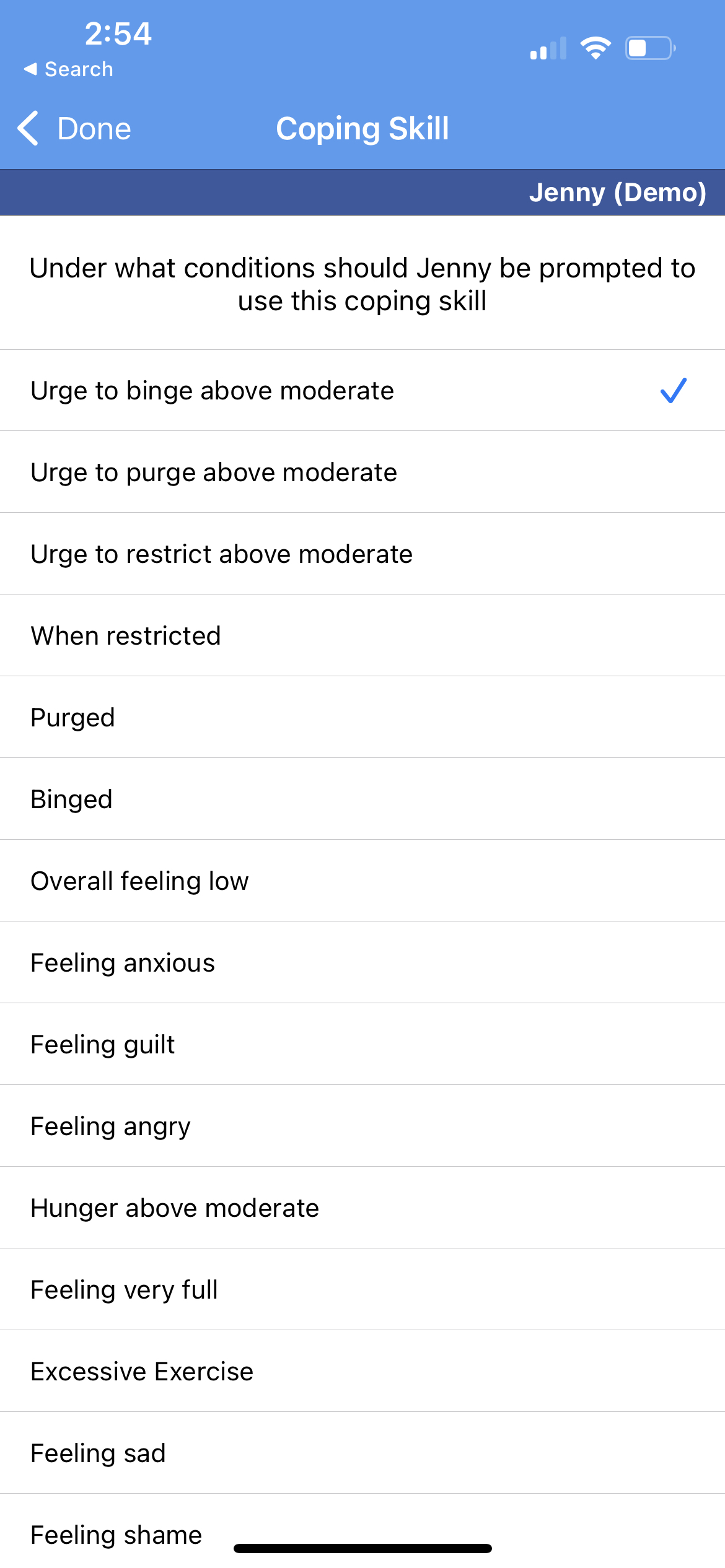 |
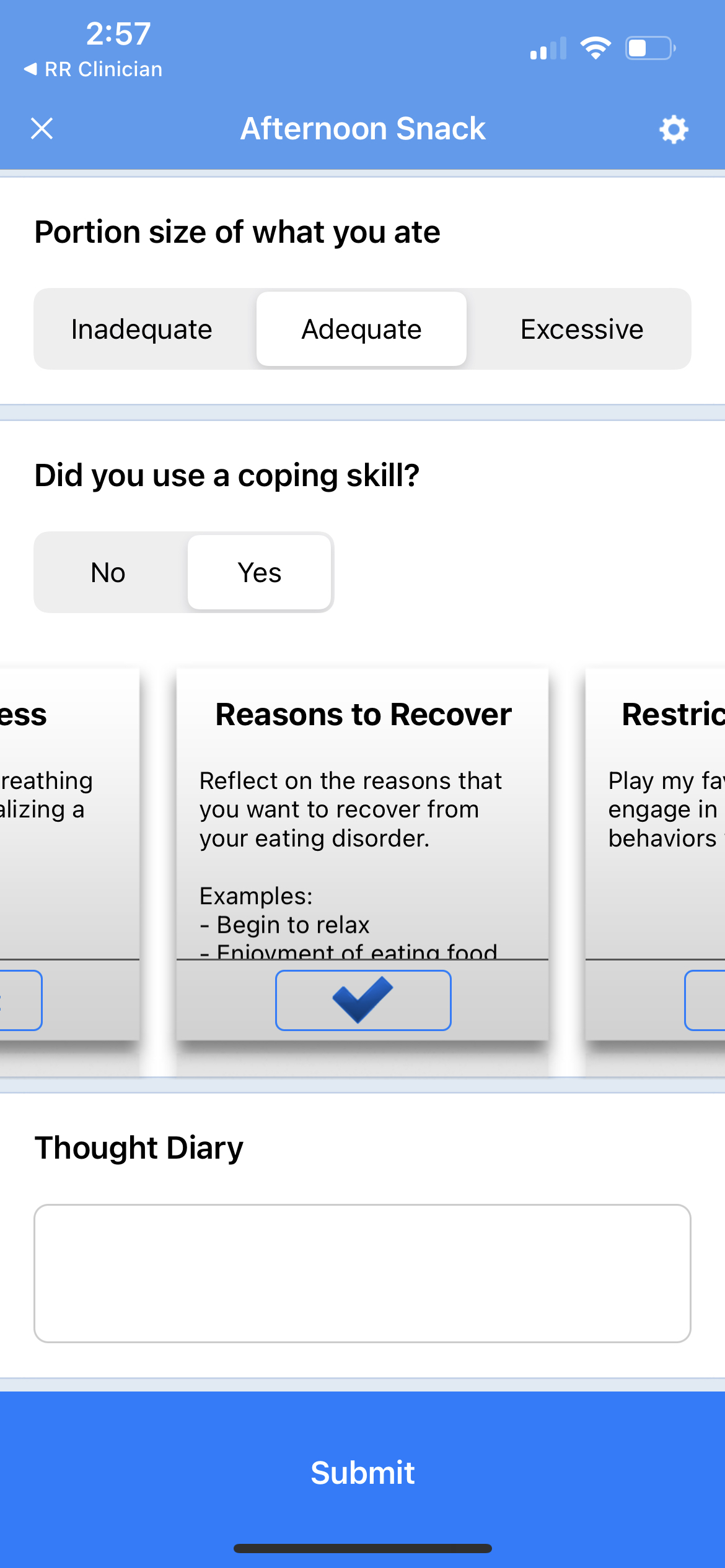 |
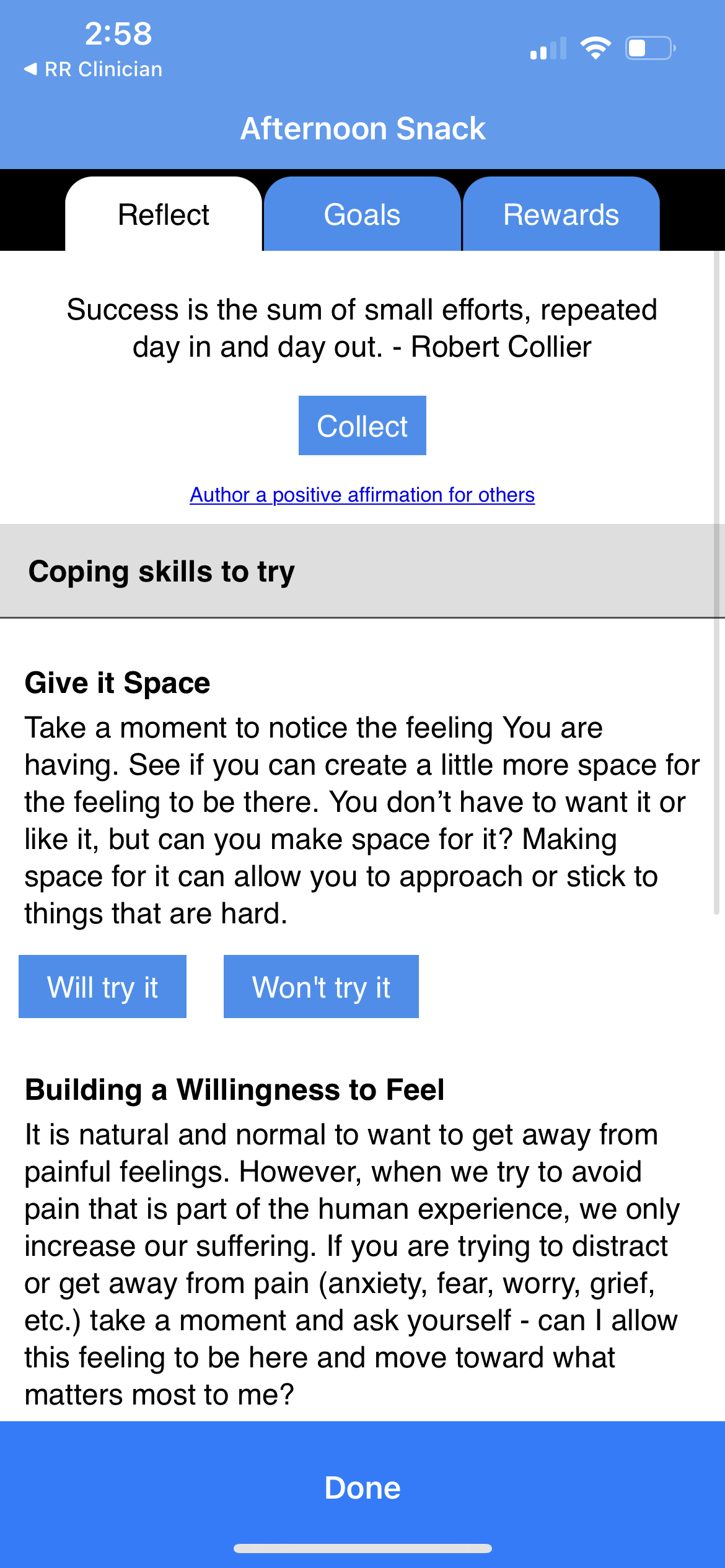 |
"Apps have the ability to extend what is discussed in the 'calm' of the therapy office into the 'storm' of real life." - Evan Forman, Drexel University Innovation Lab
